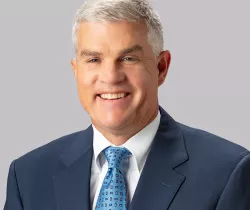Arthur Garrett

Arthur (Art) Garrett is Keller and Heckman LLP’s General Counsel and Co-Chair of the firm’s national litigation practice. He advises clients on insurance coverage and recovery, with an emphasis on trade associations.

Event cancellation insurance is a specialized insurance that provides financial coverage for organizations if they must cancel, postpone, abandon or relocate an event. It is essential for organizations hosting trade shows, conferences, concerts, festivals, celebrations or sporting events to maintain event cancellation insurance to improve their chances of recovering their losses if they cannot hold an event.
Obtaining full insurance coverage is often impossible under the “inability” definitions in these policies, which mean either a “physical inability” (the facility is no longer operational) and/or a “legal inability” (an ordinance restricts access to the facility or the event's occurrence violates civil or criminal laws).
Here are some important considerations if you purchase event cancellation insurance to maximize your potential coverage:
1. Purchase event cancellation insurance well in advance of the event, guaranteeing potential coverage if needed. You may purchase policies for recurring events, and multiple events can be covered under the same policy. Organizations should purchase event cancellation policies separately from their general liability (CGL) or property policies, as courts generally do not recognize event cancellation losses claimed under a CGL policy.
2. Carefully examine your policy for notice and cancellation timing. Policies contain specific provisions for notice and cancellation. If you cancel an event too soon, the adjuster may push back, asking the organization to wait longer to cancel or encourage an enforced reduced attendance claim. Enforced reduced attendance means that some potential attendees could attend the event. Insurers prefer enforced reduced attendance claims because they offer less coverage, but organizations may counter-argue that they purchased insurance for the event’s projected attendance. All policies require the insurer to submit a notice of loss within a specific number of days following a cancellation or postponement decision.
3. Budgeting and Accounting. Organizations should submit a budget to the insurer that covers all event expenses, including the event’s location, frequency, sponsors, vendors and booths. If the insured does not submit a budget, the insurers will consider historical pick-up reports from prior events, such as amount received from sponsors and attendees, and when cancellation occurred.
If the budget is lower than the claim amount, the insurer may deem you “underinsured” and will not cover all the expenses requested. Thus, it is best to submit a higher budget and claim less. Ensure the budget contains specific line items so the insurer can reference these items in the contract when evaluating the claim. Organizations should be prepared to submit records of attendee and exhibitor cancellations, communications regarding those cancellations and payment records for advertising, speakers, contractors and sponsors.
4. Outside Contractors. Organizations must be cautious about how they work with outside vendors, including hotels and the event location. Ideally, do not pay these outside vendors prior to filing a claim. Paying vendors signals the event can proceed. Insist on a provision allowing the organization to terminate hotel and vendor contracts without liability if the underlying event is canceled.
5. Key Exclusions. Following the COVID-19 pandemic, many policies contain a communicable disease exclusion, which courts have interpreted applies only if the World Health Organization (WHO) or government agency declares the communicable disease an epidemic or pandemic.[ii]
Most policies also contain a war exclusion.[iii] For example, following the Sept. 11, 2001, terrorist attacks, many organizations that had events scheduled shortly thereafter were unable to recover insurance, because the event’s cancellation was not beyond the insured’s control and the attacks were excluded as an act of war.[iv]
Legal counsel can help you identify policy exclusions you should be aware of to determine whether you qualify for indemnification and can assist with the notice requirements and proper documentation to submit a claim to the insurer.
[ii] Radiological Soc'y of N. Am., Inc. v. Those Certain Underwriters at Lloyd's of London, No. 21 C 1265, 2021 WL 2853360 (N.D. Ill. July 8, 2021), appeal dismissed, No. 21-2455, 2021 WL 6841553 (7th Cir. Oct. 13, 2021).
[iii] See Whitman, supra note 2.
[iv] Id; see also Info Management Network v. Certain Underwriters at Lloyd’s, 2004 NYLJ Lexis 4607, at *1-2 (N.Y. Oct. 15, 2004).
Editor's note: Sara Zeimer, an associate with Keller and Heckman LLP, contributed to this article. She advises clients on litigation matters in multiple areas, including toxic torts, pharmaceuticals, product liability and environmental actions. She represents clients, from emerging start-ups to Fortune 500 companies, before state and federal courts.

Add new comment